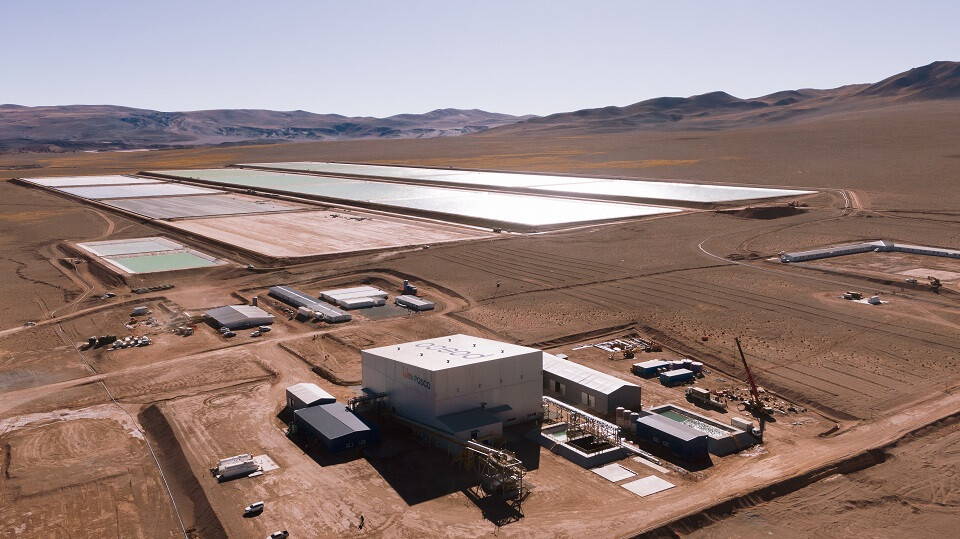
Argentina – Authorities in Argentina's Catamarca province have conducted an on-site inspection of POSCO Holdings' lithium project. This measure aligns with local regulations that mandate the establishment and implementation of environmental restoration plans after mine closure, aiming to meticulously verify the execution of post-mine life plans and the current status of project development.
Focus on Post-Closure Plan Implementation
According to foreign media reports, including the Catamarca Ministry of Mining and Salta Mining, the Provincial Directorate of Environmental Mineral Management (Dirección Provincial de Gestión Ambiental Mineral, DiPGAM) conducted an urgent inspection of POSCO's lithium project located in Salta province on May 22 (local time). This inspection specifically focused on verifying the implementation of key aspects outlined in the mine closure plan, including environmental and safety restoration plans after closure, as well as the current status of project development.
Catamarca province is a pioneering region in Argentina that proactively introduced regulations concerning mine closure plans. Under a resolution adopted in 2016, mining companies operating locally are obligated to establish comprehensive closure plans that include environmental restoration, facility dismantling, and measures to prevent soil and water pollution upon the cessation of mining operations. Since then, Catamarca provincial authorities have continuously monitored the progress of these plans on-site.
This recent inspection was part of these ongoing monitoring activities. DiPGAM conducted an on-site inspection of a copper-silver mine in the Belén region of Catamarca province in late April and continued its inspections in early May, visiting a silver-gold mine undergoing exploration by Canadian and Argentine companies and a lithium project under development by Galaxy Lithium in the northern region. This demonstrates Catamarca province's strong commitment to environmental protection and sustainability, alongside the economic benefits of mining development.
POSCO Lithium Project: Argentina's First Commercial Lithium Hydroxide Production
POSCO Holdings is a significant player in Argentina's lithium industry, operating the country's first commercial lithium hydroxide facility. In 2018, POSCO Holdings acquired the mining rights to the Hombre Muerto salt flat, a key lithium brine deposit in northwestern Argentina, establishing a local subsidiary and actively pursuing the securement of lithium raw materials.
After validating its technology through the operation of a demo plant, POSCO commenced construction of the 'brine lithium phase 1' upper and lower processes in 2022. The upper process, located at an altitude of 4,000 meters above sea level in Salta province, produces lithium phosphate, which is then transported to the lower process in the low-lying Güemes area to be finally converted into lithium hydroxide.
In October of last year, POSCO Holdings successfully completed the phase 1 brine lithium plant with an annual production capacity of 25,000 tons. This marked a crucial milestone in establishing a stable supply chain for lithium hydroxide, a key battery material. Furthermore, construction of the phase 2 upper process, with the same capacity, is also underway, demonstrating POSCO's commitment to further strengthening its position in the global lithium market. Upon completion of phase 2, POSCO will have a total annual lithium hydroxide production capacity of 50,000 tons, sufficient to produce batteries for approximately 1.2 million electric vehicles.
Strengthening Environmental Regulations and the Importance of Sustainable Mining
Argentina, boasting the world's fourth-largest lithium reserves, forms the 'Lithium Triangle' with Chile and Bolivia, playing a pivotal role in the global battery supply chain. Particularly, brine lithium development can have significant environmental impacts depending on the extraction method. Consequently, the Argentine government is increasingly strengthening regulations to balance mineral resource development with environmental protection.
Catamarca province's proactive enforcement of mine closure plans clearly illustrates this policy direction. In the past, severe environmental problems sometimes arose due to inadequate environmental restoration after mining operations ceased. However, it is now essential for companies to establish closure plans from the initial stages of mine development and undergo continuous monitoring by authorities. This aligns with the international trend demanding environmentally friendly mining practices and sustainable development from corporations.
Lithium brine development, in particular, attracts significant attention from environmental organizations and local communities due to its large water consumption and the potential impact on surrounding ecosystems from the evaporation process. Therefore, lithium producers must strive to minimize environmental impacts by adopting water-saving technologies, strengthening wastewater treatment systems, and making efforts to preserve biodiversity. POSCO is also known to be investing in technology development and efforts for sustainable lithium production, meeting these environmental regulations and the demands of local communities.
This inspection exemplifies the Argentine government's firm resolve to ensure that mining development within its borders is conducted in an environmentally responsible manner, sending a clear message to foreign investing companies. Sustainable mining is no longer an option but an essential element, and companies must strive for long-term business success by fulfilling their environmental, social, and governance (ESG) responsibilities.
[Copyright (c) Global Economic Times. All Rights Reserved.]



























